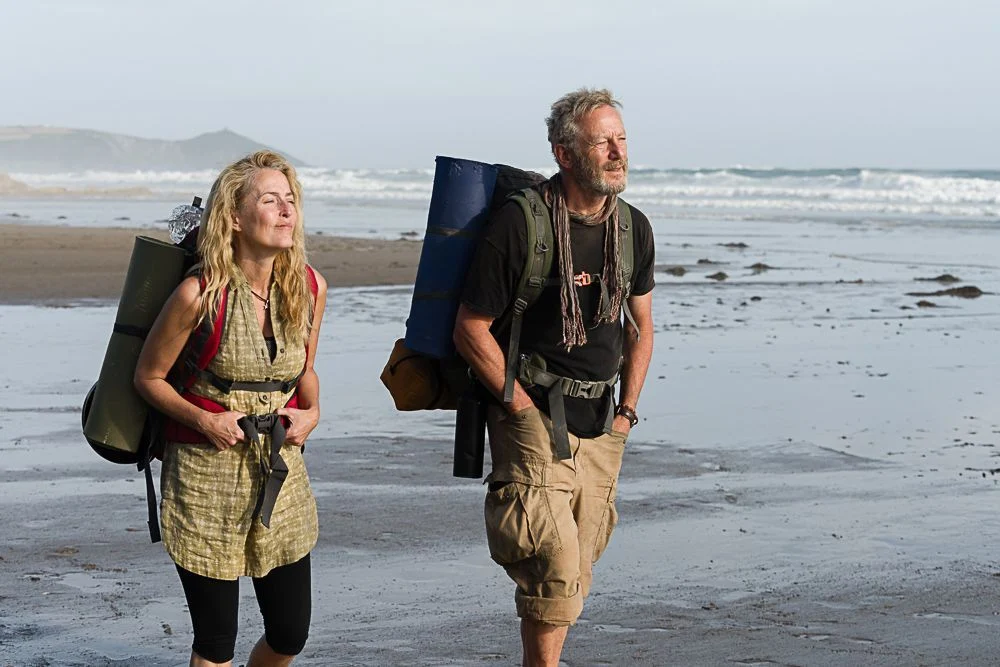Ken Loach’s I, Daniel Blake meets Jean-Marc Vallée’s Wild in this moving saga of a couple who, evicted from their long-term home, decide to walk the South West Coast Path of England over the course of a year. Based on the 2018 memoir by Raynor Winn, there are tears, blisters, aches and pains, hunger and a whole lot of love – but for such a remarkable story, Marianne Elliott’s adaptation falls strangely flat despite its inherent emotional value.
Gillian Anderson stars as Raynor, or “Ray”, headstrong, determined, her suffering just below the surface. Jason Isaacs meanwhile plays her sensitive husband Moth who, the same week of their eviction, is diagnosed with corticobasal degeneration, a fatal neurogenerative disease. He is warned, quite alarmingly, to be careful going up the stairs. The couple are dumbfounded by this diagnosis – Ray tells the doctor numerous times that he is wrong and to check his notes again, please and thank you. It’s moving, but strangely mechanical in a way, as though Anderson is hyperaware that she is portraying a real woman. No doubt a great deal of sensitivity, as with all adaptations based on real life, must be accorded – the real Ray Winn herself stated that she didn’t see how someone as glamorous as Anderson could portray her in the raw state she was in during the walk. Anderson ends up doing a good enough job, as does Isaacs in portraying a man struck down by crippling pain – but they are let down by a lack of pacing and a script that never entirely goes to the heart of them. The topic of homelessness is danced around without weight – Ray is proud, certainly, hesitant of all help given to them, but when funds run low at the bank, it almost comes as a surprise. The length of the trip, despite shortages of food and water and the very convincing limping Isaacs puts in, is never quite felt – the film itself is almost like a journey in which milestones are methodically crossed off, but the views are never appreciated. Chris Roe’s soundtrack is also chronically underutilised – its swells as shots are widened out to encapsulate the entirety of the coast are perhaps the only tear-inducing sequences in a story which should be overflowing with them.
The beating heart of The Salt Path, despite its shaky script, remains the love story between Ray and Moth – perhaps it is Anderson and Isaacs’ chemistry, or perhaps it is that it would be almost impossible not to acknowledge the tenderness between these two people regardless of the actors portraying them. Ray is last to go to sleep, first up, stricken with anxiety – she takes care of Moth in the most beautiful way throughout, adding pasta to his bowl when is not looking, foregoing water when he has forgotten to fill up his bottle. She is devoted, though perhaps she wouldn’t like to be called it. In turn, Moth is tender with her, reassuring – a simple caress of the shoulder to show he is still there. Interestingly, one of the strongest moments of the film is their only argument – it is moving not because of their anger, but because it offers a glimpse into a very different story, of what could have happened to them had they not been so calm and supportive of one another. Amid the beautiful shorelines of South West England, these two chose to walk on.





